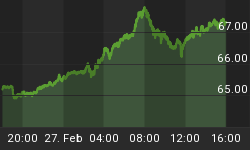The country with the largest proven oil reserves in the world, clocking in at a whopping 299,953,000,000 barrels of proven oil, is currently suffering a fuel shortage so great that it is being viewed by many around the world as a humanitarian crisis. Despite being so incredibly resource rich, Venezuela continues to suffer from an extreme economic crisis with no clear end in sight. In large part thanks to severe international economic sanctions, the South American nation has been left with few options and few friends. The Trump administration has been especially tough on trade with Venezuela in an attempt to push the nation’s despotic leader Nicolas Maduro out of power. After years of cutting off nearly every conceivable stream of revenue for the country--which was once the wealthiest on the entire continent--Maduro remains in power, and the most embattled victims of the sanctions are not those in his cabinet but the Venezuelan citizens themselves.
Venezuela currently relies heavily on Iran for fuel imports to keep their transportation systems, agricultural infrastructure, and generators running, and while some international oil shipments have managed to skirt U.S. sanctions, the flow of fuel in and out of Venezuela has slowed to the slightest trickle. With no market for their crude, the nation’s very last oil rig left back in August, and in September Bloomberg reported that the country was tearing apart its now useless pipelines to sell as scrap metal in a desperate strategy to scrape together some cash.
Now, as the tough-on-Venezuela Trump era is drawing to a close, many see the administration transition as an opportunity for a fresh start for Venezuela. “Representatives of fuel suppliers to Venezuela, importers of Venezuelan oil and advocacy groups said this month they plan to press the incoming administration of U.S. President-elect Joe Biden to reverse a ban on crude-for-diesel swaps,” Reuters reported this week.
Related: Can Shale Resist The Lure Of Another Output Surge?
These advocates are not calling for a complete lifting of sanctions or renewed diplomacy with Maduro’s government--far from it. The crude-for-diesel swaps under consideration here were legal under the Trump administration until the last quarter of 2020. When the U.S. stopped making this exception, the impact on Venezuelan citizens was almost immediate. “Farmers are already warning that shortages are impeding sugar harvesting and rice planting,” Reuters reports.
The humanitarian crisis in Venezuela is a grave one, and many advocates for the Venezuelan populace see the new administration in the United States as a beacon of hope for those currently suffering from fuel shortages. The concern is that the current sanctions are not helping the U.S. get any closer to its goal of punishing Maduro and his government, but are simply punishing the already beleaguered people of Venezuela instead. “We hope that the incoming Biden administration can take a more strategic look at the purpose of the sanctions, and can lift those that don’t change the position of the group in power and instead create problems for the population,” Feliciano Reyna, president of Caracas-based aid group Accion Solidaria, was quoted.
Internal PDVSA (Venezuela’s state-owned oil company) documents show clearly that the nation hasn’t received diesel imports since November of last year, leading data analysts to extrapolate that the country will run out of the fuel as soon as March or April. Amazingly, despite this grim prognosis, Maduro’s government continues to export diesel to Cuba, its close ally and sister in sanctions. One the one hand, this could be used as an argument to show that Venezuela doesn’t need a loosening in sanctions to receive more diesel if Maduro already feels that he has enough to give away. However, the real lesson here is that this part of U.S. sanctions is of no concern to Maduro, nor is the suffering of his people. A reinstatement of crude-for-diesel trade therefore can’t hurt the U.S. agenda, only stands to help the Venezuelan people.
By Haley Zaremba for Oilprice.com
More Top Reads From Safehaven.com:
















